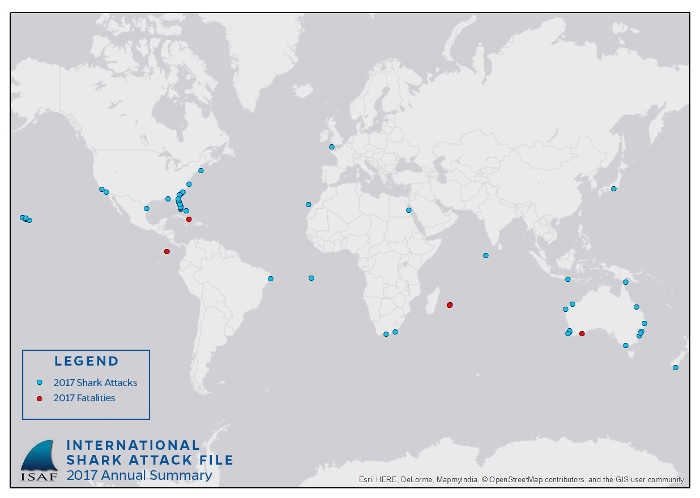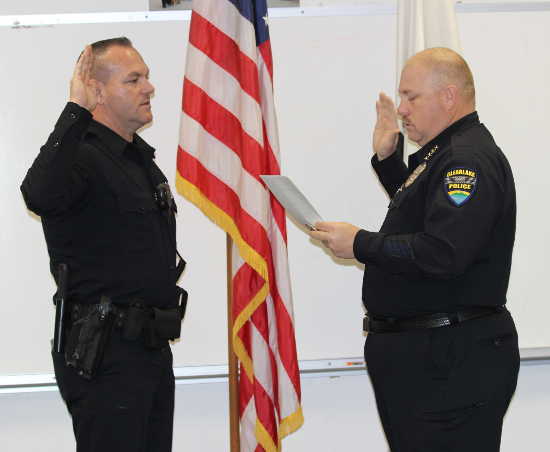LAKEPORT, Calif. – The Board of Supervisors on Tuesday voted to give county administrative staff direction to begin the work of putting a 1.5-cent sales tax before county voters this June.
The 4-0 vote – with Supervisor Jeff Smith absent – came as part of a discussion on last month’s series of community visioning forums to educate the community about the county government’s deepening financial challenges.
The five forums were broken down into one in each supervisorial district.
County Administrative Officer Carol Huchingson said that at the meetings they showed posters with the board goals as well as department challenges.
To a great extent, the board’s goals are in sync with with the community’s needs, Huchingson said.
She said the loss of property and sales tax revenues due to the recent disasters, combined with increasing cost of services thrust upon the county by state government “has created a serious and growing revenue gap.”
In the past, the county could use reserves to bridge the gap. “The day of fiscal reckoning is here,” she said. “The situation is no longer sustainable.”
The second purpose of the forums was engaging the public in helping county leaders prioritize community services and develop consensus around budget and financial solutions aimed at eliminating that revenue gap.
Huchingson said the forums originally were set to take place in the fall, but had to be delayed due to the Sulphur fire, the sixth disaster in 36 months.
She said the visioning forums were a “resounding success,” attracting a total of 620 residents. The videos are available on the county Web site at
http://www.lakecountyca.gov/Government/Directory/Administration/visioning.htm as well as the Lake County News YouTube channel,
https://www.youtube.com/user/LakeCoNews.
Considering community responseHutchinson showed a slide with the highlights of community members’ input, including increasing economic development, marketing the county to increase tourism, grant writing, developing a robust volunteering program to fill the gaps, enhancing collaborative efforts in the community especially with local tribes, redesigning business practices and improving service delivery, strengthening the county workforce, tapping cannabis for a revenue stream, disaster prevent, and taxes – keeping up with delinquent tax sales and consider a sales tax measure such as the cities have implemented.
“We were really pleased with the quality of response received from so many members of the public,” who Huchingson said asked good questions and made good suggestions to save money or increase revenues.
The county also distributed a four-question community survey, Huchingson said. As of Feb. 2, the county had received 298 completed questionnaires, 208 of them dropped off at the forums and the remaining 90 submitted electronically or via email.
Huchingson said community members were asked to rank the top 11 core services, which are departments and agencies funded by property, sales and gas tax.
The community ranked the following in highest priority order: Public Works/roads, sheriff’s office, libraries, senior programs, code enforcement, parks/museums, animal control, district attorney, veterans programs, agriculture and probation, she said.
The core services people felt were more deserving of increased funding were roads, the sheriff’s office and libraries, Huchingson said.
She said there also was a lot of community input about the importance of programs that benefit families like libraries and museums that.
The core services people were most willing to see decreased were agriculture, parks and museums, probation, and a tie between the district attorney’s office and veterans programs, Huchingson said.
Because agriculture is a major industry in Lake County, Huchingson said staff concluded survey respondents were not affiliated with that industry and didn’t use its services.
The low ranking for veterans services came as a surprise considering the large number of veterans who live here and the general support for veterans in the community, she said.
Supervisor Rob Brown said agriculture isn’t a drain on local government like some other services that are necessary. He said the agriculture community, while small lin number, pays the largest amount in tax per capita.
He suggested looking at more grant funding and instead of cutting back on things like parks, instead consider not adding more. Brown said they also need to look at departments that used to be funded by grants but aren’t any longer.
Huchingson said the cities have implemented sales taxes, and the survey showed that when asked if they would support a county sales tax, 72.48 percent of survey respondents supported it, with 24.49 percent opposed it and 3.02 percent leaving the question blank.
The county followed up with a telephone survey in which they asked about the most important core services. There were 300 respondents.
Responses were as follows: law enforcement, 32.8 percent; roads, 24.8 percent; senior programs, 13.5 percent; veterans programs, 6.8 percent; animal control, 4.9 percent, agriculture, 4.2 percent; libraries, 2.7 percent; parks, 2.4 percent; other (not on list), 1.1 percent; undecided/don’t know, 6.7 percent. The responses also were broken down by supervisorial district, which gave slightly different rankings.
The survey also asked about a sales tax increase. Responses were: yes, strongly, 35 percent; yes, somewhat, 19.9 percent, for a total yes response of 54.9 percent.
That’s contrasted with no, somewhat, 5.7 percent, and no, strongly, 34.1 percent, for a total no response of 39.8 percent. Those who didn’t know or were unsure totaled 5.2 percent.
“These results aren’t as compelling as we got from the surveys, but we think that’s understandable, because these were just simply cold calls, made to people without any kind of background, and people who attended the forum heard a considerable amount of background on our financial reality,” Huchingson said.
The poll also broke down support for a sales tax measure by district:
– District 1: yes, 64 percent; no, 33 percent; unsure, 3 percent.
– District 2: yes, 57 percent; no, 40 percent; unsure, 2 percent.
– District 3: yes, 52 percent; no, 43 percent; unsure, 4 percent.
– District 4: yes, 51 percent; no, 40 percent; unsure, 8 percent.
– District 5: yes, 53 percent; no, 41 percent; unsure, 6 percent.
Huchingson said it was interesting that there appeared to be support in districts 2 and 4, which are home to the cities of Clearlake and Lakeport, respectively. Both of the cities last year began implementing new 1-cent sales tax measures.
Department heads share response to forumsHuchingson thanked the community and county staff for participating. The community’s response will help create a road map to address the county’s challenges.
“I really look forward to holding future community visioning forums,” she said, explaining that future events will focus on the long-term economic vision for Lake County.
She thanked the department heads who participated, many of them in attendance at Tuesday’s meeting.
Public Services Director Lars Ewing said he was disappointed at the input about parks and museums. Economic development was raised during the process, and he challenged them to find any economically vibrant community that doesn’t have a vibrant parks, museums and trails system, adding that he didn’t want to focus on a “depression era mindset.”
Public Works Director Scott De Leon said he was glad for the opportunity to give his message, explain why things are difficult and the roads are in bad condition. He said he got good questions from people and had good interactions from citizens afterward.
County Librarian Christopher Veach said he appreciated attending the meetings and hearing from people, and said many people told him it was hard to rank the services.
Sheriff Brian Martin commendend Huchingson for putting on the forums.
“For me, the results weren’t that surprising,” he said, as far as everyone wanting a safe community.
One of the issues talked about during the forums is his agency’s average 30-minute response time, which he said he wants to see improved.
Huchingson then returned to the public input highlight list from the forums, which included economic development, marketing/tourism, grant writing, volunteer, community collaboration, redesign of business practices for improved service delivery, strengthening the county workforce, cannabis, disaster prevention and taxes.
“Frankly the way I view this list is a really cool to do list, a list for us to get busy around,” she said, noting many of them are reflected in the board’s goals.
She said she wants to bring forward some slight revisions to the board’s goals to embrace the suggestion list.
“I think it’s time for staff to get busy with these things, and I hope your board will be supportive of that,” Huchingson said.
Board takes up sales tax proposalHuchingson then turned to a request for the board to consider directing staff to pursue a sales tax.
The board could consider a tax just in the unincorporated county or one that covered the entire county, including the two cities, where she said it appears there is support.
In the cities, sales tax already is 1.5 cents higher than in the county, she said.
If the county pursued a 1.5 cent sales tax in the unincorporated area, she said it would level the playing field, help address fire recovery and bring in an estimated $4.5 million annually. A one-cent tax would generate $3 million annually.
A sales tax that included the cities as well would have to be capped at half a percent, as the cities already are taking up 1.5 percent of the 2-percent cap, she said. That also would generate $3 million.
“We lean toward leveling the playing field, because it’s what our constituents are accustomed to paying,” she said of the 1.5 percent sales tax, noting if they want to move forward with developing Lake County, they would need additional revenues.
As for next steps, County Counsel Anita Grant said the first is to prepare a resolution to put the measure before voters and to prepare a general tax ordinance.
By Feb. 27 it could be in front of the board, said Grant, with Huchingson adding that the intention is to have it on the June ballot.
Board Chair Jim Steele asked about a possible sunset, saying he believed there would be more support for it. Grant said it’s common to see 10-year tax increases.
Huchingson said a tax for 10 years would provide great resources to the county. The sales tax would have an oversight committee, which she suggested have two board members, representatives from her office, a department head, members of the public and the auditor controller.
During public comment, county residents Cheryl Carr and Phil Murphy spoke against the sales tax. Carr accused the county of mismanaging funds and giving raises it couldn’t afford, with Murphy also raising the issue of raises and previous failed sales tax attempts, which were different due to being special taxes anding a supermajority of 67 percent to pass.
Lake County News later asked Huchingson to respond to the issues raised about raises for staff.
She said that in 2015 there was a change in the way employee retirement expense was paid for most county employees, requiring that each employee pick up his/her employee contribution. At the same time there was a 3-percent cost of living increase, or COLA, the first since 2007.
“Despite that COLA, salary expense paid from the General Fund is less than it was in 2009/2010,” Huchingson said.
Supervisor Tina Scott said wishing won’t fix the county’s financial problems, and acknowledged that the county will need to do other things as well.
Brown said he was willing to put the tax on the ballot to let the voters decide. He said there are some things the county has got to do differently.
Steele said there are things holding the county back in the area of economic development, some of which have come to the surface and are being prioritized, and said the entire Northshore is economically disadvantaged. He said he didn’t see the county handling its financial problems any other way than the sales tax, and supported a sunset to the tax, which Brown also supported.
“I think we need to prove to the voters that we’re going to spend this money wisely and improve Lake County,” said Scott.
Steele said it’s necessary to get the county past the disasters that have impacted it.
Supervisor Moke Simon agreed that they needed to do something and this is one step in moving the county forward.
Scott moved to approve moving forward on the sales tax proposal, which the board approved 4-0.
In other business, the board gave direction to move forward on releasing a request for proposals for a classification and compensation study and supported developing a compensation philosophy statement.
The board also presented a proclamation designating the month of February 2018 as Black History Month and Celebrating Martin Luther King's birthday and received an update on status of the consolidation project for CSA No. 16, which involves Paradise Valley Water System and the Clearlake Oaks County Water District .
Also on Tuesday, the board appointed Sara Brucker, Rosario Morris, Brandy Perry, Carla Ritz and Jami White to the Child Care Planning and Development Council and Douglas Domer to the Glenbrook Cemetery District Board.
Email Elizabeth Larson at This email address is being protected from spambots. You need JavaScript enabled to view it.. Follow her on Twitter, @ERLarson, or Lake County News, @LakeCoNews.

 How to resolve AdBlock issue?
How to resolve AdBlock issue? 








